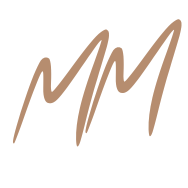Where to Start, Storytelling?

I didn’t always want to be a writer, but I always enjoyed reading. Even as a kid in Yemen, I was among the very few who owned comic books. My mom had to travel across the city to the bookstore— I wish I could find them now. I have even sent people to our old apartment, but without luck.
I started writing when I was in college. A Political Science professor of mine, who is also a writer, used to dedicate a few classes of the semester to writing workshops. One time, he assigned us to write a few sentences about a specific topic. Then, during the following class, he went through some of our paragraphs and explained the text, and what it was doing to the reader. I remember the first workshop, where he showed us a few sentences to different students. He asked us to choose our favorite. I chose the longest and most sophisticated one. But then he pointed at the shortest of them all, a four-word sentence, and broke it down word by word. He explained the relationship between the words, the sound of the sentence as a whole, and where the weight of the idea lived. That sentence came to life for me and left me thinking for days.
Later that week, I scheduled a meeting with my professor and told him I wanted to be a writer. His blue eyes glistened and a smile stretched across his face, like I had told him good news he was awaiting.
“I think you’d be a great writer,” he said.
“How do I start?” I asked him.
“Start a journal, every day, write about yourself. Every day!”
That’s exactly what I did. I began writing in a journal about my classes, and the new ideas I was exploring, and soon began recalling childhood events and images that were buried deep in my mind. But while writing I found myself decorating my life with people I didn’t meet, incidents I didn’t experience, and places I didn’t visit. I felt guilty for lying, and for a while stopped writing. However, a voice kept calling me to return to the page. It was then that I decided to write fiction.
Fiction is the vehicle, but the art is storytelling.
So if you want to start writing, but don’t know how, then start by journaling. Don’t make any rules for yourself, except a promise, a negotiation that you will sit for 10 to 15 minutes every day and write anything that comes to your mind. You can write about your subway ride, or a class you like or hate, or a conversation you had with a friend or a family member. Also, read, read, read, like mad. Even if you find out later that writing isn’t your cup of tea, you will at least have learned how practitioners tell stories in the most efficient and entertaining way. This will make you a better storyteller, and if you can tell your story then you are in a better position to express yourself in the clearest form.
In today’s market, if you are not able to tell your story, speak about your skills, and map your process— even if you are good at what you do— you're often pushed to the back of the line. I see many people in my workplace who, as I see them, are not competent at what they do, but they are talented storytellers. I’m not saying that’s a sustainable way to go about your career, but learning how to tell stories gives you the communication advantage.
However, I don’t want the ability to tell your story, and storytelling as a skill, to be confused with the idea of story writing. In the latter, there are general rules to abide by, and much freedom in the execution. This I will cover in future posts. In the meantime, sign up for my newsletter so you don’t miss what’s coming, the weekly snippets I share from my writing practices.
